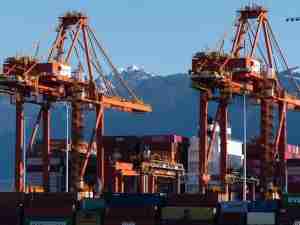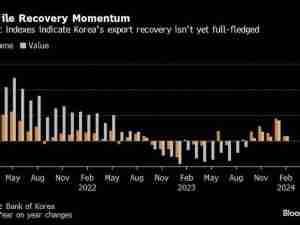Ireland warned the European Union that a proposed carbon levy could hurt the country’s electricity market and post-Brexit trading relationship if the U.K. isn’t exempted from the measure.
Emma Tobin, an Irish diplomat, told EU environment ministers gathering in Brussels on Monday that the U.K. should be excused from the proposal to tax certain carbon-intensive goods imported into the bloc. Ireland’s electricity system is integrated with that of Northern Ireland and the U.K. Power generation is one of the sectors covered by the proposed Carbon Border Adjustment Mechanism.
“There are a number of concerns from Ireland,” Tobin said. “Serious considerations should be given to aligning carbon pricing regimes in the U.K. and the possibility of white-listing them.”
The concern that the CBAM might affect the U.K.-Ireland trading relationship adds to the enormous complexity of how to deal with the question of the border with Northern Ireland. Britain has been threatening to suspend some of its obligations under the Brexit agreement, with talks on the issue set to run into next year.
CBAM, which is due to come into effect in 2026, has been designed by the EU in an effort to prevent production shifting to places with laxer emission controls. It covers sectors like steel and cement and has come under criticism from countries such as China and Russia, who see it as a discriminatory trade barrier.
Under the CBAM system, importers will need to buy a new type of pollution certificate to reflect carbon emissions in line with prices on the bloc’s Emissions Trading System. The fee could be at least partially waived if a carbon levy has already been paid in the country where the goods were produced. The U.K. has signaled it would be willing to link its system with the EU’s, a move that would white-list the U.K., but such an agreement has yet to be reached.
Since the departure of Britain from the EU, Ireland has no physical electricity interconnector with the bloc, though an undersea link to France is expected to be completed by 2027. Tobin said that the country understood the EU has no intention to have a carbon border on the island of Ireland, but that confirmation was needed.
We have concerns “around where the commission view the carbon border will be in the absence of an agreement and how goods in transit from the Republic for the U.K. via Northern Ireland will be treated,” she said.








